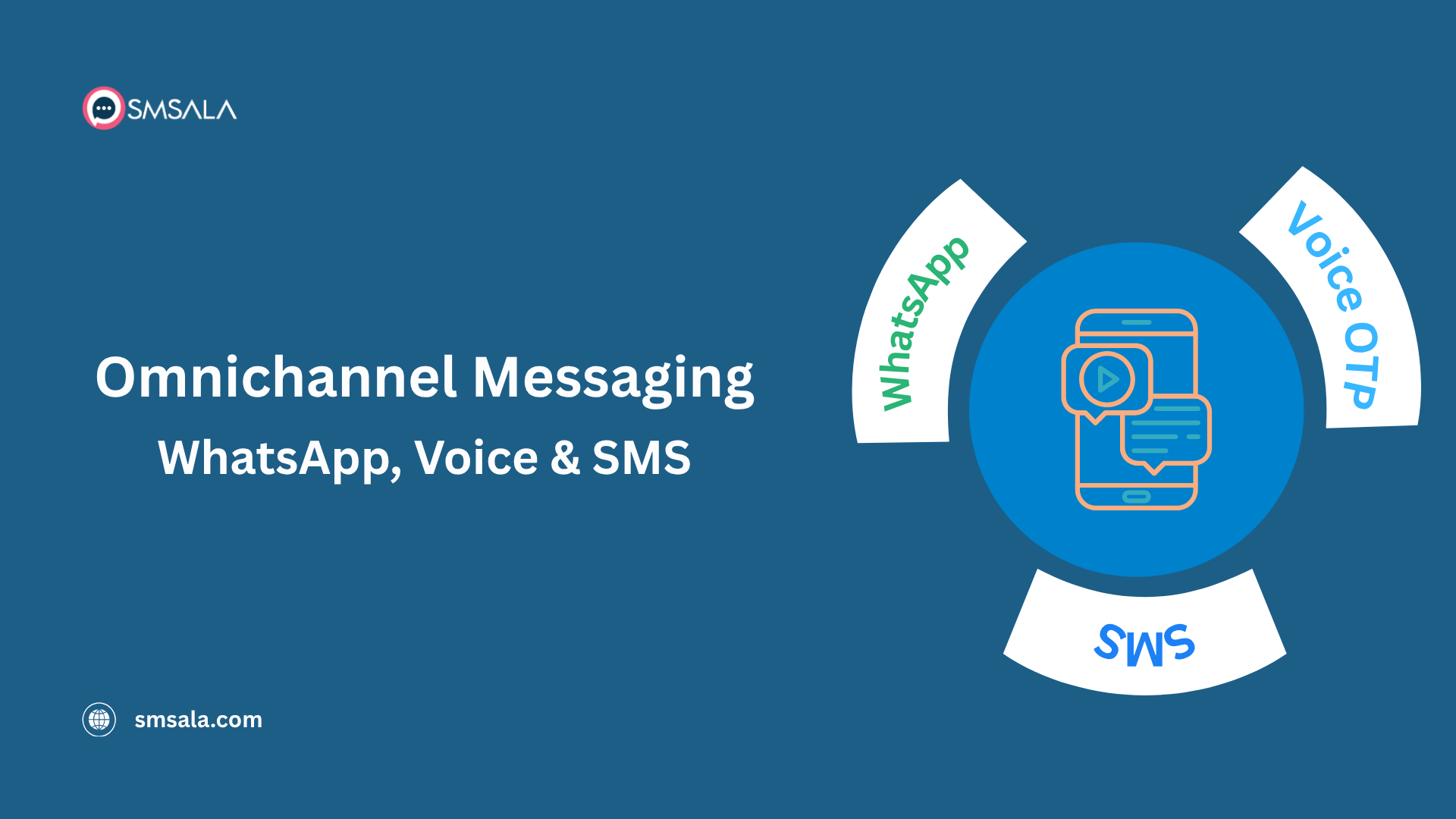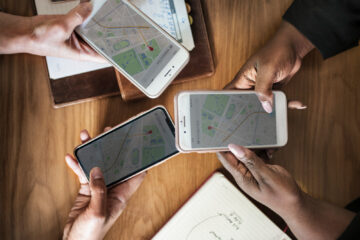Walk into a Dubai cafe or a co-working space, and you’ll overhear the same conversations among business owners: “We need faster replies. Customers don’t wait anymore.”
That sums up the current state of communication in 2026. A single message or one support channel isn’t enough. People want to talk to brands on their terms — through WhatsApp, a quick call, or an SMS they can trust.
This is where omnichannel messaging comes in. It’s not jargon anymore; it’s simply how smart businesses in Dubai now keep their customer conversations consistent.
For a city that runs 24/7 across cultures, languages, and time zones, having every message connected under one system isn’t a “tech upgrade,” it’s survival.
What Omnichannel Messaging Actually Means
Forget the buzzwords for a moment. Omnichannel messaging just means your different communication tools work together, not separately.
Say you order something online. You get an SMS when it’s shipped, confirm the delivery through WhatsApp, and receive a quick call asking for feedback, all without having to reintroduce yourself. That’s omnichannel.
It’s the opposite of what most businesses used to do, sending scattered messages from different systems that don’t talk to each other. With an omnichannel setup, everything is connected in one thread. Your customer never has to explain their story twice.
Why It’s a Big Deal for Dubai Businesses
Dubai is fast, mobile-first, and multilingual. Customers here are tech-savvy; they expect instant, reliable updates, whether they’re in Jumeirah, Deira, or Sharjah.
That’s why companies are shifting from separate tools to connected communication systems. Most are building their stack around three key channels:
- Bulk SMS Service in Dubai for quick alerts, delivery updates, and OTPs
- Voice Call API UAE for reminders, verifications, and service confirmations
- WhatsApp Business Messaging for interactive customer chats and marketing
Together, these channels form a single, fluid conversation. Customers can move from one platform to another without any loss of context, and that alone can lift satisfaction scores overnight.
The Channels That Make It Work
SMS: Still the King of Reach
You can’t beat SMS for reliability. It works even when your customer’s phone has no data or poor reception.
Banks, delivery apps, and hospitals all rely on it for OTPs and confirmations. And because the UAE’s telecom regulators keep SMS traffic secure and verified, it’s a channel people still trust.
WhatsApp: The Customer’s Favourite Platform
WhatsApp feels personal, that’s why it’s so effective. A restaurant can confirm a reservation, a courier can share live location, and a salon can send a quick reminder all through one familiar app.
In a city where nearly everyone uses WhatsApp daily, ignoring it means missing the most natural way to connect.
Voice: The Human Touch
Some things still need a voice. A voice call is clear, emotional, and often faster. Automated voice APIs now make it possible for Dubai businesses to trigger thousands of personalized calls in seconds, confirming bookings, reminding clients, or verifying important actions.
A Real Example from Dubai
A fintech company in Business Bay was struggling with OTP delivery. They used to rely only on SMS. When users switched to WhatsApp as their main messaging app, the OTP success rate fell.
They introduced a new system:
- Send the OTP first on WhatsApp.
- If it’s not delivered in five seconds, send it via SMS.
- If still undelivered, trigger a voice call.
The result? A 98% success rate within seconds and happier customers who never had to request another code. That’s the quiet power of omnichannel communication: simple, automated, and reliable.
What Businesses Gain from Going Omnichannel
- Consistency: Your tone, message, and branding stay uniform everywhere.
- Reach: One message will always get through, even if a channel fails.
- Data insights: You can finally see which messages get read, clicked, or ignored.
- Compliance: TDRA rules are built in, so messages stay verified and secure.
- Customer comfort: People don’t have to repeat details or chase updates.
It’s small things like that which build long-term loyalty.
How Different Industries in the UAE Use It
- Banks and Fintech: Send loan reminders on WhatsApp, OTPs via SMS, and urgent verifications with a voice call.
- Healthcare: Confirm appointments through WhatsApp, send lab results via SMS, and use voice reminders for follow-ups.
- E-commerce: Send order confirmations through SMS, delivery tracking on WhatsApp, and request feedback with a voice call.
- Education: Share attendance and fee reminders via SMS, report cards through WhatsApp, and use voice calls for urgent notices.
- Logistics: Combine SMS and voice calls to reach customers quickly and reduce failed deliveries.
Staying Compliant and Building Trust
- In the UAE, communication is closely regulated by the TDRA. Every sender ID and message template has to be approved before use.
- A good omnichannel platform handles all of that for you, one registration, one system, all channels covered.
- Customers also feel safer when messages come from verified business IDs instead of random numbers. It’s small, but it matters.
Where It’s Headed Next
Dubai businesses are starting to use unified APIs and single systems that can automatically decide the best channel for each customer.
If someone always opens WhatsApp first, the system sends there. If they’re more responsive to calls, it triggers a voice message. That kind of intelligent routing is becoming the next competitive edge.
RCS (Rich Communication Services) is also gaining momentum; think of it as a modern version of SMS with brand logos, buttons, and media support. It’ll likely become part of the omnichannel mix soon.
Choosing the Right Partner
When you’re picking an omnichannel messaging provider, check a few things:
- Proven delivery rates and uptime
- Ready APIs for SMS, WhatsApp, and voice
- Built-in TDRA compliance
- Clear reports and analytics
- Local support for both English and Arabic
In Dubai, reliability counts as much as technology. You want a partner who can respond quickly, not just one who sells you a dashboard.
Final Thoughts
Dubai’s customers have moved past one-channel communication. They expect brands to remember their history, their preferences, and their last conversation, no matter where it happened.
- Omnichannel messaging lets businesses do exactly that. It ties together SMS, WhatsApp, and voice so conversations flow naturally.
- It’s not about sending more messages. It’s about sending the right message, at the right time, through the right channel.
- For businesses that want to keep pace with Dubai’s connected audience, that’s not just smart marketing, it’s common sense.
- And with SMSALA, building that kind of communication system is simpler than ever.




